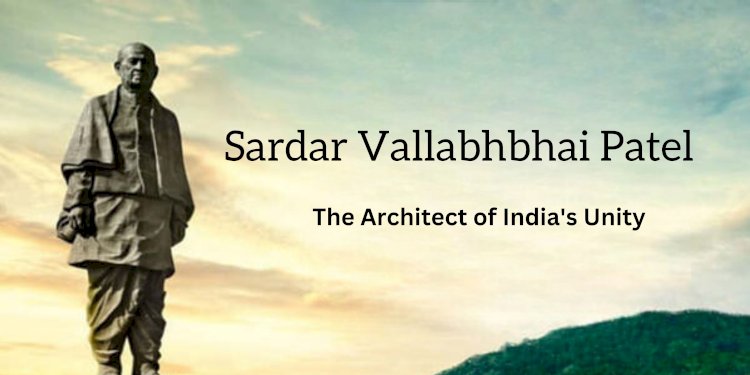Sardar Vallabhbhai Patel: The Architect of India's Unity
In celebration of Unity Day, the article pays homage to Sardar Vallabhbhai Patel, the "Iron Man of India," highlighting his remarkable role in integrating over 562 princely states into the newly independent India after gaining freedom from British rule. Sardar Patel's unwavering commitment to national unity and integrity prevented the disintegration of the nation, earning him a place of honour in India's history. This day serves as a reminder of his visionary leadership and the importance of unity in a diverse and vibrant nation.
By Shreya Rajvanshi Gangal

Every year on October 31st, India pays homage to one of its founding fathers, Sardar Vallabhbhai Patel, on his birth anniversary. This day is celebrated as "Unity Day" or "Ekta Diwas" to honour the great leader's unwavering dedication to preserving the unity and integrity of our nation. Sardar Vallabhbhai Patel's role in the integration of princely states into the newly independent India is a remarkable chapter in our history, earning him the title of the "Iron Man of India." As we commemorate this day, let us reflect on the life and legacy of a man who played a pivotal role in shaping the modern Indian nation.
The Visionary Leader
Sardar Vallabhbhai Patel, born on October 31, 1875, in Nadiad, Gujarat, was a visionary leader and a prominent freedom fighter. He was a lawyer by profession and quickly gained prominence in the Indian National Congress for his dedication to the cause of India's independence from British rule. Patel was a key figure in several non-violent movements and civil disobedience campaigns led by Mahatma Gandhi.
However, it was his role as India's first Deputy Prime Minister and Minister of Home Affairs that set him on the path to greatness. Patel was entrusted with the colossal responsibility of integrating over 562 princely states into the newly formed Indian Union after gaining independence in 1947. His skilful diplomacy, unyielding determination, and unwavering commitment to national unity earned him the nickname "Sardar," which means "chief" or "leader."
The Integration of Princely States
Sardar Vallabhbhai Patel's most significant achievement was the integration of the princely states. When India became independent, it consisted of British India and over 562 princely states, each with its ruler and administration. The unity and territorial integrity of the nation were at stake. Patel, with his persuasive diplomacy, effectively convinced the princely states to accede to India, ensuring that they became an integral part of the Indian Union. His tireless efforts prevented the Balkanization of India, preserving the nation's sovereignty and integrity.
Conclusion
Unity Day, celebrated every year on the birth anniversary of Sardar Vallabhbhai Patel, is a reminder of his exceptional contributions to the nation. His vision, determination, and unwavering commitment to unity have left an indelible mark on the history of modern India. As we commemorate Ekta Diwas, let us not only honour the memory of the "Iron Man of India" but also draw inspiration from his dedication to a united and harmonious nation. Sardar Vallabhbhai Patel's legacy continues to remind us that unity and integrity are the cornerstones of a strong and prosperous India.
What's Your Reaction?



















